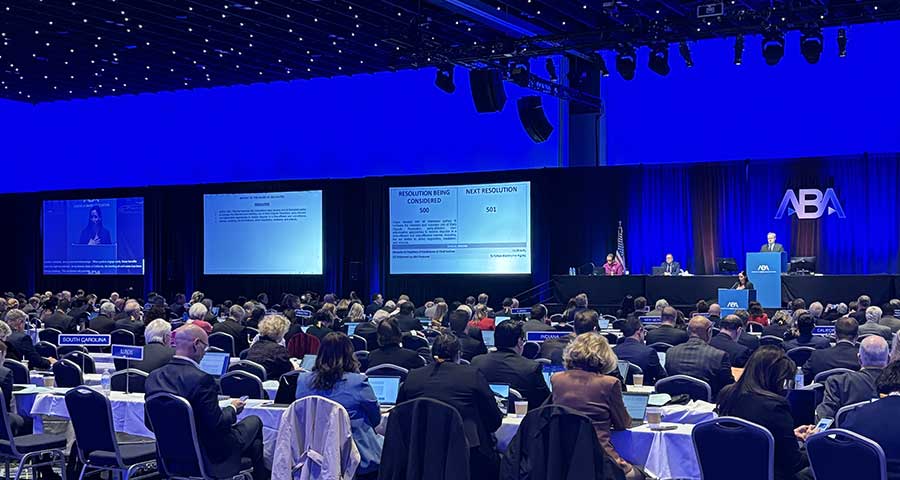
Alternative Dispute Resolution (ADR) popularly refers to processes outside of court used to resolve a dispute. Alternative describes these extra-judicial processes because litigation, unfortunately, is the norm in dispute resolution. While ADR has always been a superior way to resolve most disputes, the Covid-19 pandemic has made the need for more efficient resolutions even more urgent. Processes aimed at early resolution of disputes should be the primary option for companies, with litigation engaged only as necessary. Because of this distinction between what is the norm and what should be, Early Dispute Resolution (EDR) is now commonly the preferred name for these types of extra-judicial processes.
The Novel Coronavirus pandemic has changed the economy and legal landscape in ways unprecedented in our lifetime. Courts all over the country have decreased capacity to adjudicate cases resulting in a long backlog in scheduling hearings and trials. Emergency orders have also temporarily precluded some legal remedies such as evictions and garnishment of wages. Meanwhile, breaches of contract and payment defaults abound. With an uptick of disputes, less money to go around, and less opportunity for courts to bring timely and meaningful relief, thoughtfully engaging EDR processes has become an urgent core competence of companies.
Too many modern companies still rely on litigation to address business disputes that arise. The dispute is often handed over to outside counsel and the company loses control of decisions, their documents, and their business relationships. Litigation is a long drawn out and costly method to resolve disputes. The closure of courts during the pandemic will cause the already back-logged court system to be negatively impacted for years to come.
Conflict Prevention and Management Policies
To adapt to the new environment, companies should create corporate conflict prevention and management policies, which strategically place EDR at the forefront of dispute resolution strategy. EDR can take the form of direct negotiation, mediation, or arbitration. Use of negotiation and mediation puts the company in control of its money, documents, reputation, and business relationships.
Core to the conflict prevention and management policy should be a dispute prevention program which includes training for employees. Employees should understand their obligations under company contracts and own up to those promises. Employees should also be trained in relationship management. Poor communication is often at the heart of grievances and employees should be given instruction and constructive feedback to reduce such preventable loss. Employees should be trained in addressing complaints and internally escalating as appropriate. Additionally, company contracts should be reviewed and updated, incorporating lessons learned over the course of transactions.
To be sure that EDR processes will be used if a dispute arises, a conflict prevention and management policy should mandate that the company strive to include early dispute resolution clauses in all contracts which state that the parties will negotiate and mediate a dispute before filing a lawsuit. The dispute resolution clause can also mandate the use of arbitration over litigation.
When a dispute arises, an early case assessment must be made, and a systematic use of the resolution process needs to be set forth. The case assessment is essential in determining the best course to pursue for a particular case. The case assessment should include a thorough understanding of the grievance, a complete investigation into the available facts, comprehensive legal research, an understanding of the potential and probable range of outcomes, a determination of what is in the best interest of the company, a full understanding of the company’s ethical obligations, consideration of the value of an ongoing relationship with the opposing side, potential loss of company reputational goodwill and other intangible costs, establishment of a settlement value, and instruction of how this type of conflict should be prevented in the future. A company policy should support a company’s commitment to behave ethically with both internal and external stakeholders.
Value-based Fee Agreements
In-house counsel and others in the company should be trained to prevent and resolve disputes early even before the need to mediate or litigate arises. When outside counsel is retained, firms are usually paid an hourly rate, which creates an incentive for the law firm to maximize billings to the company. In this type of fee arrangement, there is no incentive to settle the matter early.
There are ways to limit the expense involved in using outside counsel. In fact, the Value-based Agreement (VFA) has been gaining popularity in recent years, although its still only used in a minority of cases. Arrangements can be made to encourage early settlement by using a flat fee for the work, which can include a bonus/success fee for early resolution. Success, importantly, is defined in the VFA. Fixed fees are valuable to companies since it gives them budget certainty. Success fees incorporated with fixed fees are an effective way to motivate early and successful resolution of a case. These creative fee structures create a win-win for both the company and the firm who are able to share the value created for the company.
Using a thoughtful and strategic corporate conflict prevention and management policy will indeed create a competitive advantage for such companies who successfully adopt them, as the companies are able to resolve their dispute efficiently, preserve relationships with those who support their success, and quickly return to business.




